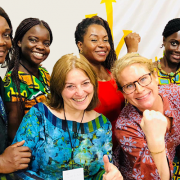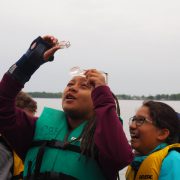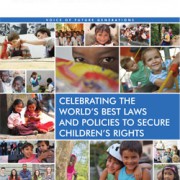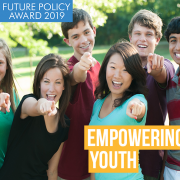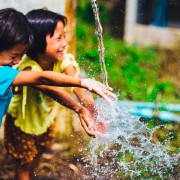Policymakers gather to share child rights best practice on protection and participation in Zanzibar
From the 28 – 30 November the World Future Council (WFC) hosted an international child rights conference in Zanzibar to explore the positive impacts of Zanzibar’s Children’s Act and share success stories on child protection, child friendly justice and participation from around the world. Representatives of ministries and policymakers from 12 countries, mainly from Africa and Asia, alongside experts on children’s rights and representatives from civil society drew up the Zanzibar Declaration on Securing Children’s Rights, committing themselves to taking strong action to eradicate all forms of violence against girls and boys. The assembly greatly benefited from the expertise and passion of two WFC Councillors Dr. Gertrude Ibengwé Mongella, former President of the Pan-African Parliament and Dr. Auma Obama, Chair and Founder of the Sauti Kuu Foundation.
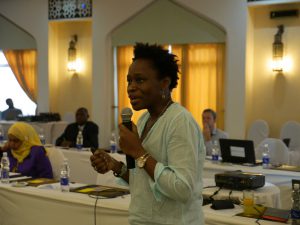
Delegates from across Africa and Asia attended the conference
Across three days, over 100 participants took part in a varied schedule of workshops, presentations and field visits looking at how to translate child rights laws on paper into national and local programmes that actually improve the experience of children and young people on the ground and effectively tackle child abuse, neglect and exploitation. Detailed country commitments on how each jurisdiction will take forward their own child rights and protection plans were drawn up.
Delegated also had the opportunity to see for themselves how Zanzibar – a semi-autonomous island region of Tanzania – has made some decisive moves to deliver real progress on justice and protection throughout its child protection system.

Conference participants visiting one of Zanzibar’s child protection facilities
This was well illustrated by a series of site visits the international legislators made to Zanzibar’s new or improved child rights institutions. The system clearly benefits from strong coordination from the National Child Protection Unit (NCPU) which helps to implement the national strategy across governmental sectors (social welfare, health, education, justice, etc.), and involves civil society, international agencies, families and children. Other key visits included the new child-friendly Children’s Court where murals adorn the walls, staff dress in civilian clothes and closed circuit video links mean young people can give evidence in a non-threatening environment. Also showcased were Zanzibar’s One Stop Centres, which comprise a 3-room unit of plain clothed police officers, medical personnel and counsellors who provide health, legal and psychosocial services to survivors of violence 24 hours a day, 7 days a week, reducing the trauma of victims of abuse to a minimum while streamlining the collection of evidence and the provision of care.
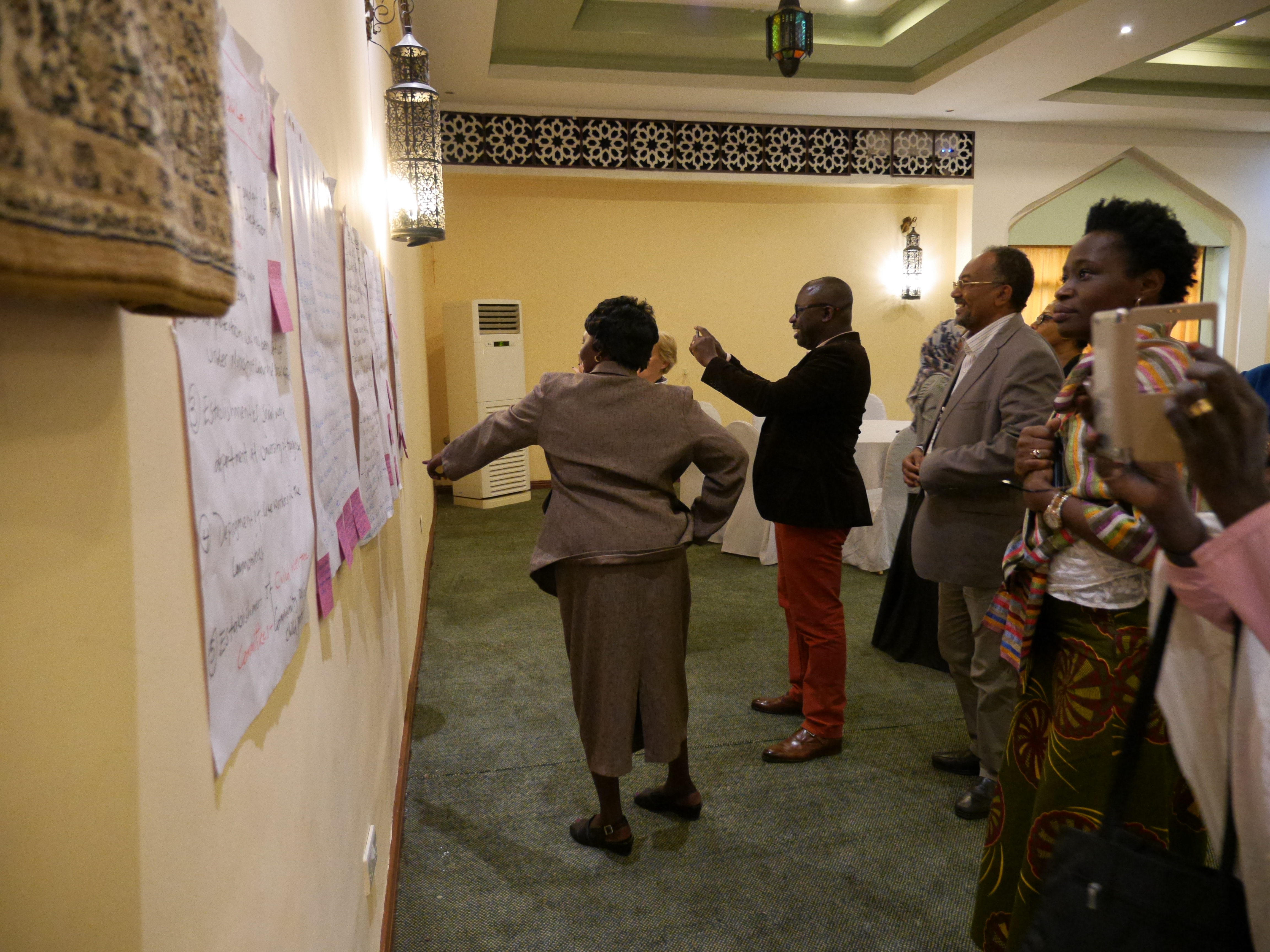
During the conference, the delegates exchanged implementation ideas and best practices
Of course, there is much still to do in Zanzibar to fully operationalise its child protection laws and national action plans and ensure that the rights of children are truly safeguarded but the innovations and progress made were impressive, particularly given Zanzibar’s limited resources. As the conference closed the signatories of Zanzibar Declaration agreed to strengthen formal and informal child protection systems at all levels with a particular focus on prevention programmes and committed to targeting the training of the social workforce, enhancing coordination at all levels and increasing budgets to ensure the safety of children.
Our task now is to apply the lessons we have all learnt and work with this vibrant network of legislators to help spread elements of child rights best practice and policy to national and local child protection systems across Africa, Asia and beyond.
The conference was convened with the support of Janina Özen-Otto, JUA Foundation and Michael Otto Foundation.
Media Links
Resources

